Inspiring Orthopaedic Leaders:
Educational Excellence in Orthopaedics
— Mr. Fazal Ali's Story —
Issue 05, October 2023

What has made your career what it is?
There is no one thing that has moulded my career the way it turned out. Hard work has been my main ethos through the years. I am the firm believer that nothing comes without hard work. A bit of luck is always needed. What I mean is that, because of luck, I have chosen some paths and met some people who have positively influenced my career for example Paul Banaszkiewicz, who introduced me to Cambridge University Press and resulted in my manuscript being published as a book.
Failure and learning from failure has had a role to play. I think that the exam or two that I failed along the way has stimulated me to learn my subject to such an extent that it has given me the confidence and skills to teach in a way that makes what I teach easy to understand.
A good network of friends, who themselves are successful in their own careers, is essential to keep the momentum going as we frequently ‘feed off each other’. Working at Chesterfield Royal Hospital has made this possible as all my colleagues and friends there frequently cover me in my absence when I carry out my national duties.
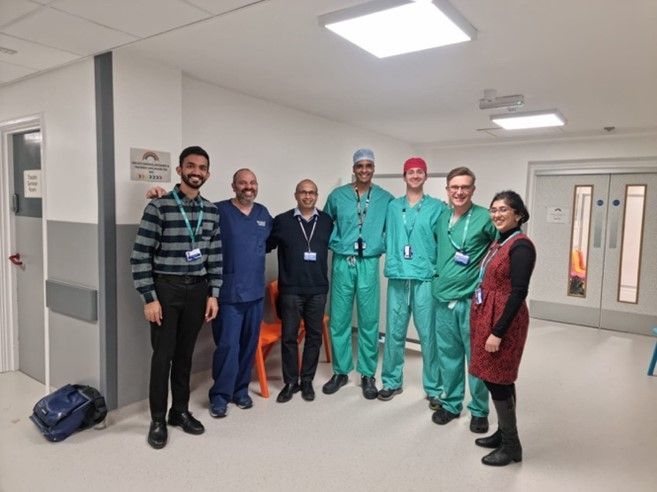
The Kids knee team at Sheffield Children’s Hospital.
Tell me about your clinical practice, in particular the Kids Knee service which seems to be a unique service?
My main practice is at Chesterfield Royal Hospital where I see my adult patients and patients that have transitioned from Sheffield Children’s Hospital. In 2015, together with Nick Nicolaou, we set up a Kids Knee service which involves the management of knee injuries in the child and adolescent and congenital problems related to the knee. This service has grown from strength to strength to the point where we attract referrals from around the country. The service has expanded and there are now two other consultants and a Kids Knee Fellow as part of the service. This Fellow is the first and only Knee Fellowship whereby the trainee can gain experience in knee surgery with an emphasis on children’s knee problems.
Is the International Kids Knee Conference part of this service?
Stemming from our work with the kids our team has established the only International Kids Knee Conference which is biennial and based in Sheffield. It attracts all the top experts in the field from around the world as speakers and also delegates from around the world. The next one will be in June 2024. This has been a major way of sharing information between countries and without doubt has helped to promote the management of kids knee problems amongst surgeons in the UK.
Why do you spend so much time training? And how has this been acknowledged?
Training has always been a big part of my professional life. I guess my style of teaching and training has been influenced by ways I should not train rather than ways I should! By this I mean that much of my own training was from seniors who used intimidation as methods of teaching. I rapidly realised that the best way to encourage the maximum learning was by creating a supportive environment. Simplifying things and teaching in a structured template also seems to work. I also believe that knowledge is wasted if is kept to oneself and sharing it is more fulfilling. These methods have stayed with me through my career and it has been appreciated by all of my trainees. For this I was voted ‘Trainer of the Year’ for my region on 6 occasions until I was awarded the ‘Lifetime trainer of the Year’ in 2015. Subsequent to that it was a great honour for the South Yorkshire training rotation to create an award in my name ‘Fazal Ali Award for Academic Excellence’ to acknowledge the trainee of the year. To date five trainees have been given this award.
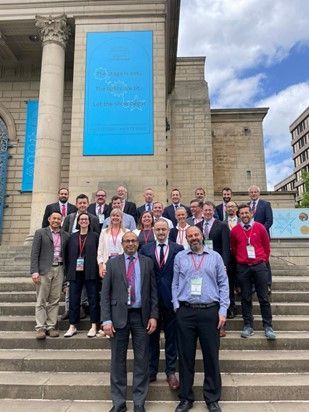
Fazal Ali and co-conveners of the International Kids Knee Conference in 2022. Nick Nicolaou and Adil Ajuied.
What about your role as an examiner?
My journey as an examiner for the FRCS Tr&Orth started in 1989 September when I arrived in the UK to write the old style part 1 - Primary FRCS. I remember arriving with a suitcase and a pile of books and staying at No 10 Hill Place in Hill Square, Edinburgh. I remember looking out of the window of my flat, with my wife and looking at the trainees entering the anatomy dissection building and looking in awe at tutors and examiners. 30 years later I recall looking out of exactly the same window, which is now the 10 Hill Place Hotel, and reflecting, again with my wife that ‘who would have imagined’ that I was now Chair of the JCIE Section 1 exam for all 10 surgical specialties! Apart from being on the Board of the JCIE, I was also up till recently on the Board of T&O as their Section 1 Lead. I am also an examiner assessor and a senior member of the JSCFE international FRCS exam. It is because of my belief in the role of an examiner that I have dedicated a large part of my professional career to the exam. And to help maintain standard of orthopaedics in the developing world I have also been integral in the running of exams in countries such as the West Indies and in Guyana.
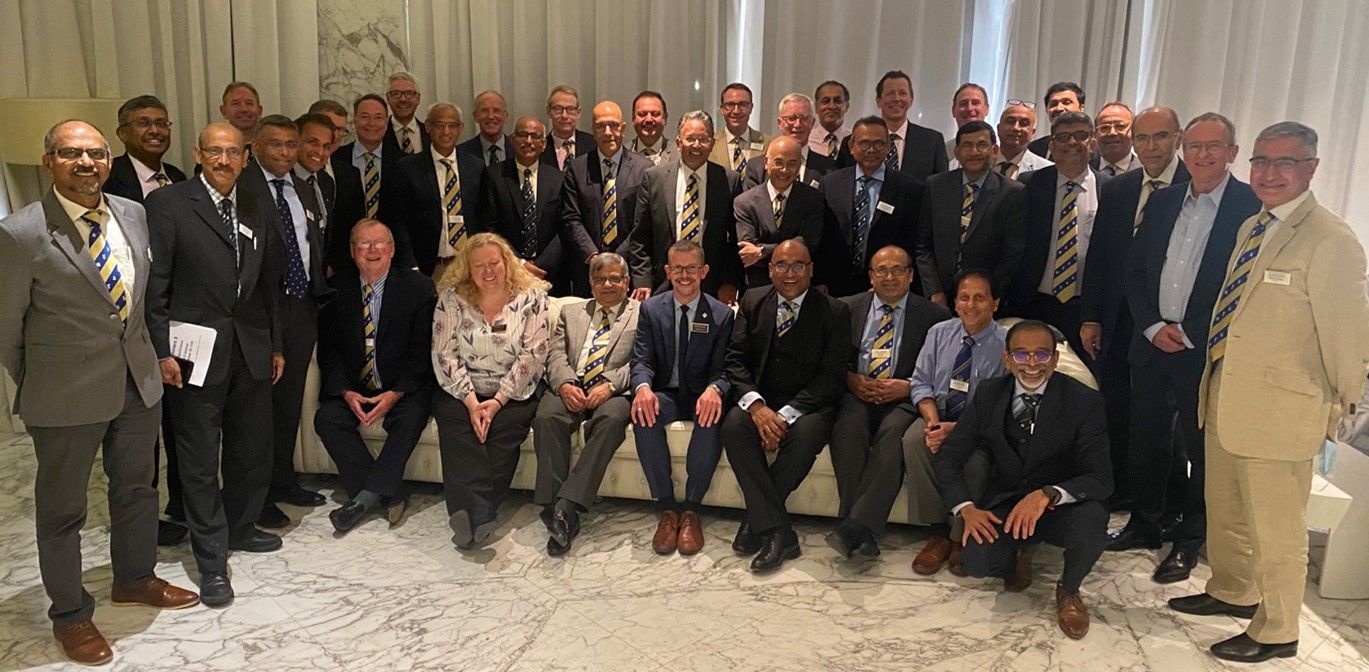
International FRCS examiners in Dubai 2022.
It seems that you place a lot of importance in orthopaedics in the developing world. Is that true?
I am originally from the West Indies and grew up in Guyana and Jamaica and went to medical school at the University of the West Indies based in Jamaica. I came to the UK soon after graduation with the view that I would do my FRCS exams and return. Unfortunately, I did not pass my Primary FRCS on the first attempt and as a result ran out of money and ended up looking for a job and working. One job led to another and before you knew it I was officially in a training programme.
To some degree my heart is still in my homeland and I therefore dedicate a lot of time and influence in helping to develop orthopaedics in these countries. Some of the things that I have done to help this include:
- Including chapters in both of my books: Orthopaedic Examination Techniques and Postgraduate Orthopaedic Clinics on topics related to issues in the developing world.
- Lecturing and examining, face to face and virtually, in many countries of the developing world.
- Operating with developing world surgeons to teach them techniques
- Running, together with my friend James Fernandes, the ISTP (International Surgical Training Programme) rotation in South Yorkshire/Derbyshire, which is an MTI scheme from the Royal College of Surgeons of England, to help train postgraduate orthopaedic surgeons from the developing world for 2 years before they return to their own countries.
Trainees speak highly of your book. Tell me about this.
One of my accomplishments that I am most proud of is the 3rd edition of my book “Orthopaedic Examination Techniques’. This is a labour of love that was written over a period of 2 years. It incorporated my experience of teaching clinical examination for 18 years with my experience of examining postgraduate trainees for over 10 years. This coincided with the covid pandemic where I was self-isolating away from my family who were shielding. This meant that I could dedicate months in isolation rewriting my book to the point where I was very happy with the product! I am particularly proud about the comments related to the new chapters and the comments in relation to the inclusivity and diversity of the book. I will probably be doing one final edition of the book before I retire.
This book is getting great 5-star reviews and is being use around the world as a standard text book. Since its release in 2022, I have been invited on numerous occasions to various parts of the world to give lectures on the content.
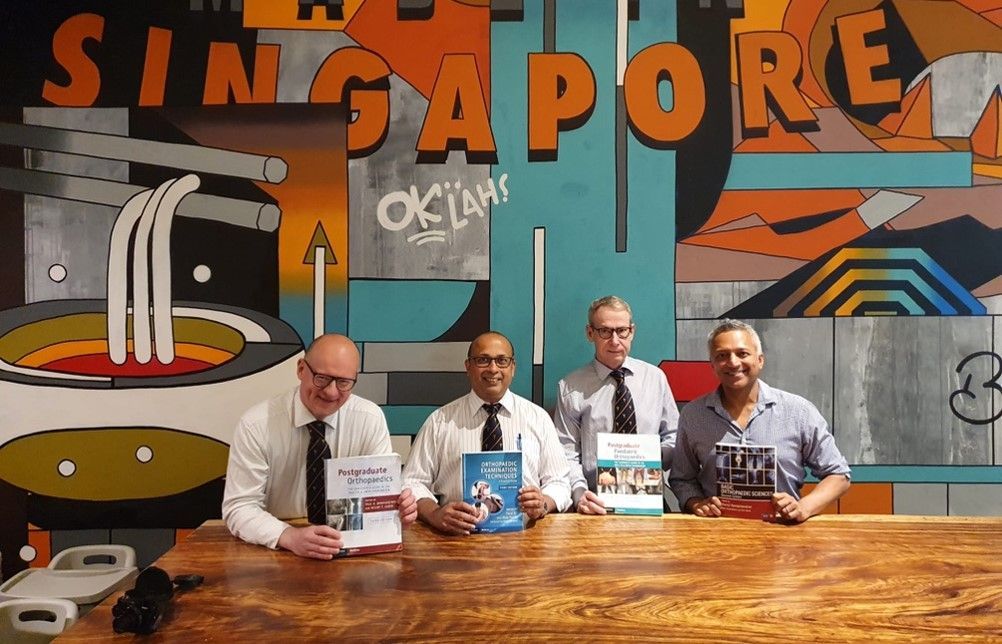
Invited to Singapore to publicize my book. Together with other authors of the standard orthopaedic texts: Paul Banaszkiewicz, Stan Jones and Manoj Ramachandran.
Is the Chesterfield Clinical course linked to your book?
Actually, it is the book that followed the course! I started teaching clinical examination as a senior trainee, using techniques I devised and perfected for my own FRCS in 2003. I used my colleagues in the early days to practice with and adjust the techniques suitably. Teaching would take place in my own home in the evenings or in the homes of my colleagues. We would also sometimes use the hospital lecture rooms and even pubs! By that time, I had made my own little teaching manual I used to give as a hand-out. Then my friends encouraged me to formalise this teaching as the demand was coming in from trainees from outside our region to be taught. I therefore teamed up with my colleagues from the Sheffield Children’s Hospital and in 2006 the first Chesterfield-Sheffield Clinical examination course was launched. The ethos of this course has always been to teach the art of clinical examination in orthopaedics. It is not meant as a pre-exam course, although it seems to be used that way! One of the key motives of the course was to allow non-trainees to have a significant proportion of places on this course to give them an opportunity to learn clinical examination as they did not have the benefit of tuition from a training programme. This has always been appreciated by surgeons not in a training programme. This course has become the largest, and most highly recognised clinical examination course worldwide. I gave up the running of it about 7 years ago as I was appointed to the JCIE T&O Board. I still have informal input especially in relation to the teaching styles. It is now expertly run by my younger colleagues from Chesterfield who have taken it into the modern era!
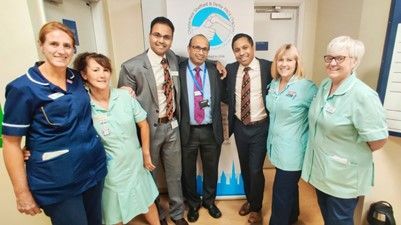
Part of the Chesterfield Course team. Picture taken a few years ago when Jeevan Chandrasenan was in charge.
How does BOSTAA fit in with your professional life?
I joined BOSTAA (British Orthopaedic Sports Trauma and Arthroscopy Association) since the early days of my career. I firmly believe that treating the injured sportsman should not just be isolated to one joint but to the entire patient. This is the philosophy of BOSTAA and I embraced it. Sporting injuries are not restricted to athlete. Everyone, from kids to the elderly, will take part in some form of recreational activity these days. So the work of BOSTAA will help everyone. I am very proud to say that I have risen up the ranks within BOSTAA to Honorary Secretary at present. BOSTAA has an emphasis on promoting educational events including BOSTAA annual conference, BOSTAA at the BOA and Cadaveric courses. We also have an active trainee committee and award annually two of the most prestigious Travelling Fellowships. I am proud to say that since I became Hon Secretary there have been about 150 new members enrolled mainly amongst the senior trainees and young consultant groups.
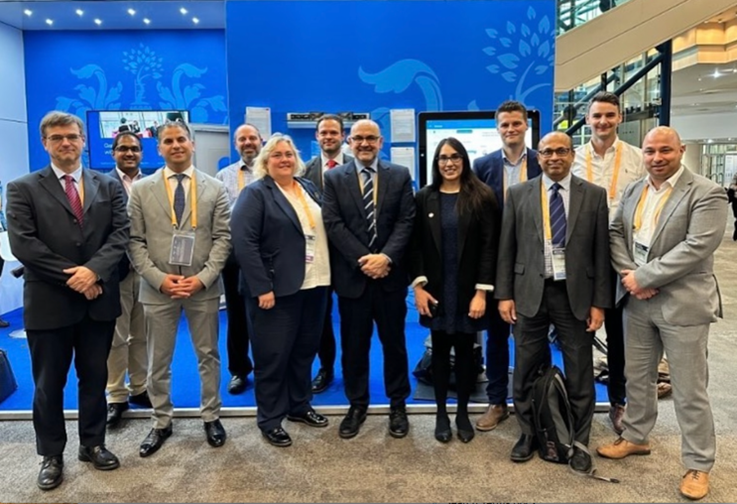
The BOSTAA Board. I am the Honorary Secretary.
Any final comments?
My career would not have been what it is without the love and support of my wife, my children and my beagle! I have a great network of friends and colleagues who support me. Last but not least, I give credit to my trainees who through the years, by seeing them succeed, have made my hard work worthwhile.
Mr. Fazal Ali
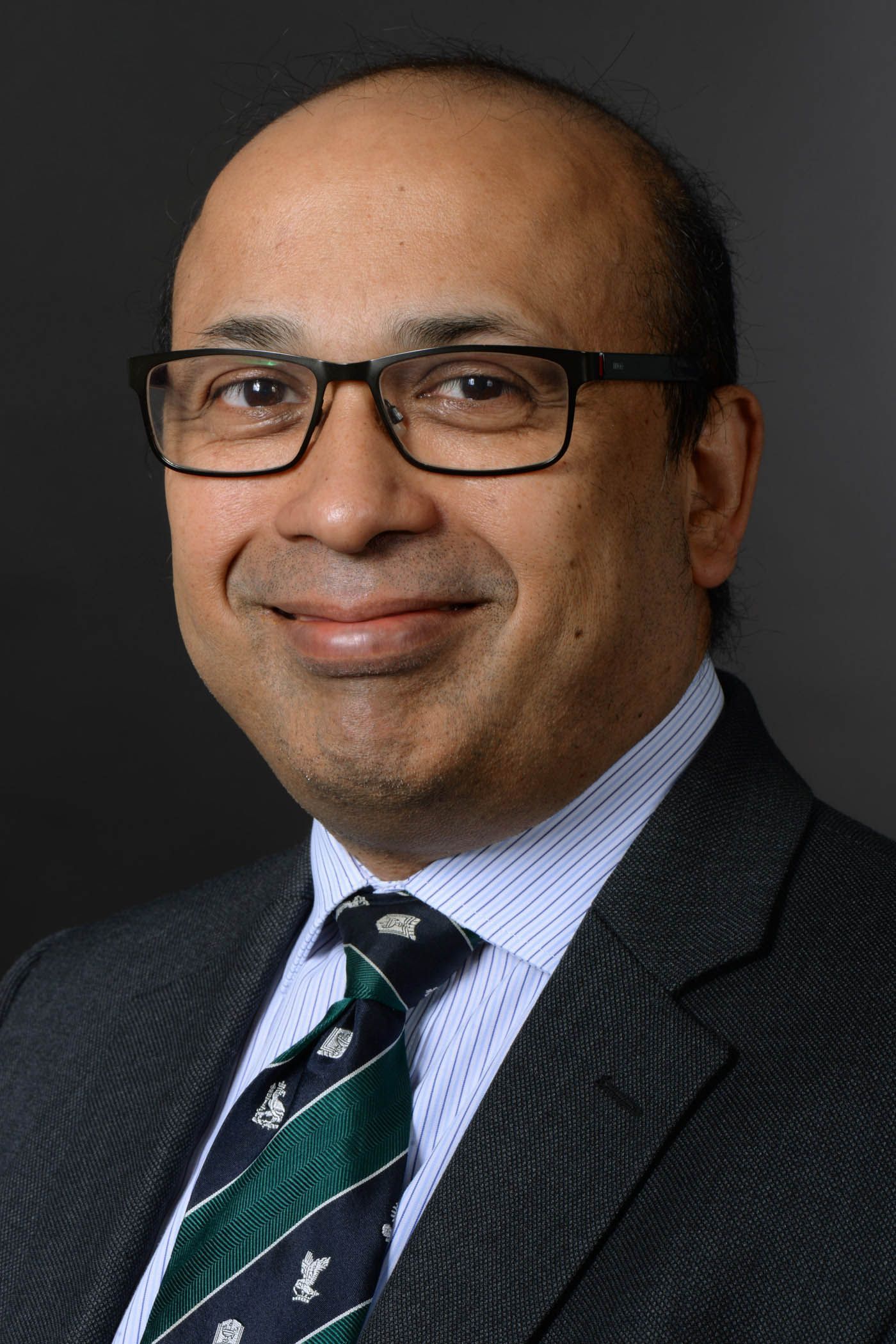
Fazal Ali has a special interest in sports injuries to the knee both in adults and in children. He works at Chesterfield Royal Hospital and the Sheffield Children’s Hospital where he is helping to set up a national referral service for these problems in children. He trained in Sheffield with a Knee Fellowship in Newcastle and a short Trauma Fellowship in New York. He is a former Training Programme Director for South Yorkshire and is presently the Honorary Secretary of BOSTAA ( British Orthopaedic Sports Trauma and Arthroscopy Association) . He is presently Chair of Section 1 of all 10 surgical specialities of the Intercollegiate Board. He has published his work, written chapters and given invited lectures on training issues and knee surgery both nationally and internationally. He has co-edited ‘Examination Techniques in Orthopaedics’ which is a best-selling orthopaedic text and is recently published in Chinese. He is the founder in 2007 of the largest clinical examination course worldwide: The Chesterfield and Sheffield FRCS Clinical course.
Fazal was voted ‘South Yorkshire Orthopaedic Trainer of the Year’ on five occasions. He was given a life-time award for training by the South Yorkshire training scheme in 2015. He was twice shortlisted by BOTA as one of the top trainers in the UK. In 2018 he was again voted Trainer of the Year, this time by East Midlands. In 2017 he was honoured by the South Yorkshire Orthopaedic Training Rotation by the creation of an annual award: The ‘Fazal Ali Award for Academic Excellence’.
He serves as a senior examiner and is a JCIE Board Member for the Intercollegiate Board in the FRCS(Tr&Orth) examinations. In 2017 he was elected to the panel of international examiners. Mr Ali also serves on the board of examiners in other countries with the view that this would help advance the standard of orthopaedic training worldwide.
We would like to thank Mr. Ali for his time and insight into orthopaedic excellence.
To download this issue of On The Podium, click below.

Sign up to On The Podium. The latest insights and inspiration from orthopaedic specialists around the globe sent straight to your inbox.
On The Podium
The newsletter brought to you by OrthoSpaceX
| Engage with Orthopaedic Leaders | Exclusive orthopaedic insight | |
| Stay Ahead in Orthopaedic Advancements | Uncover Surgical Innovations | |
| Empower Your Orthopaedic Knowledge | Unlock the Minds of Orthopaedic Specialists |
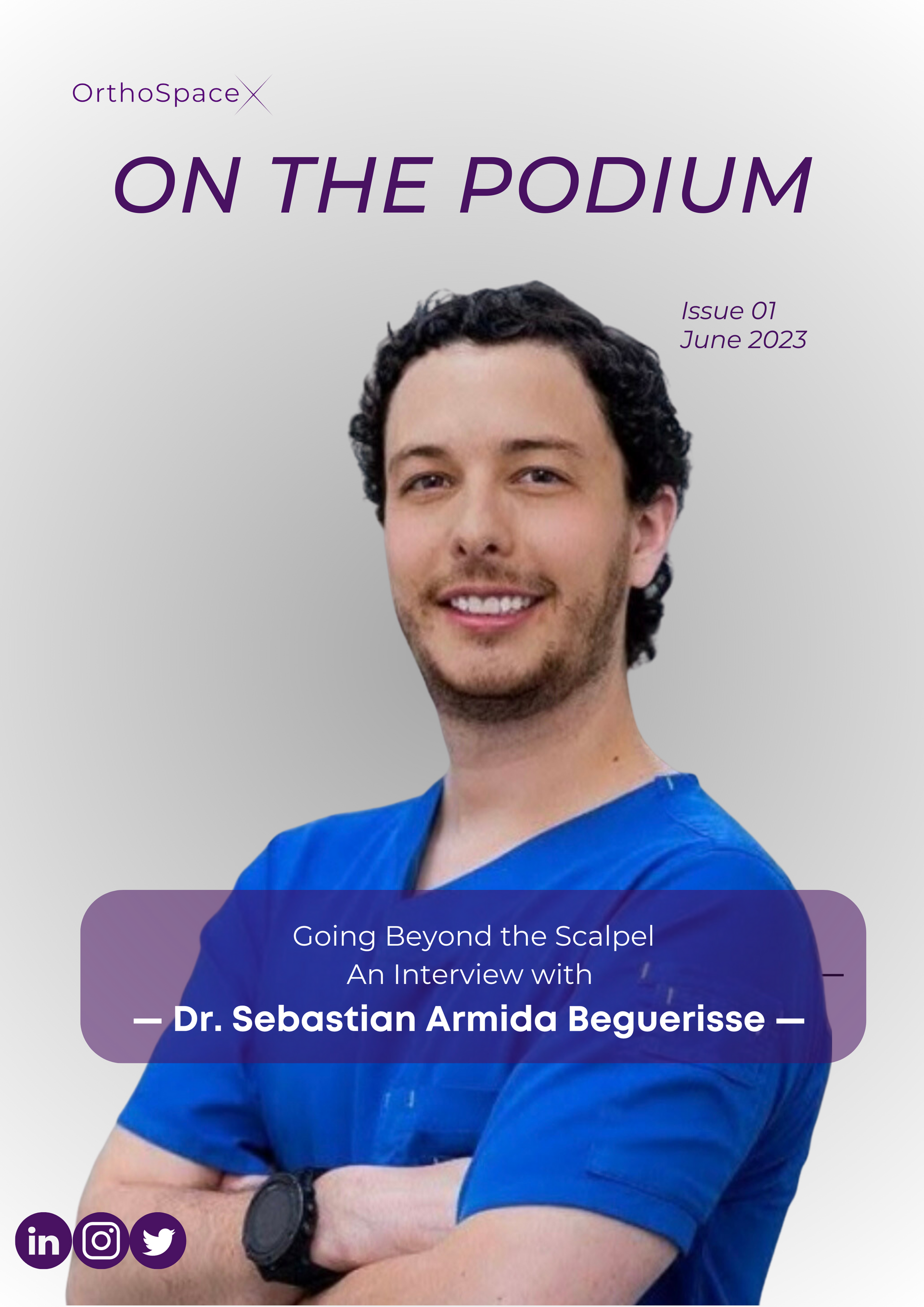
Slide title
Write your caption hereButton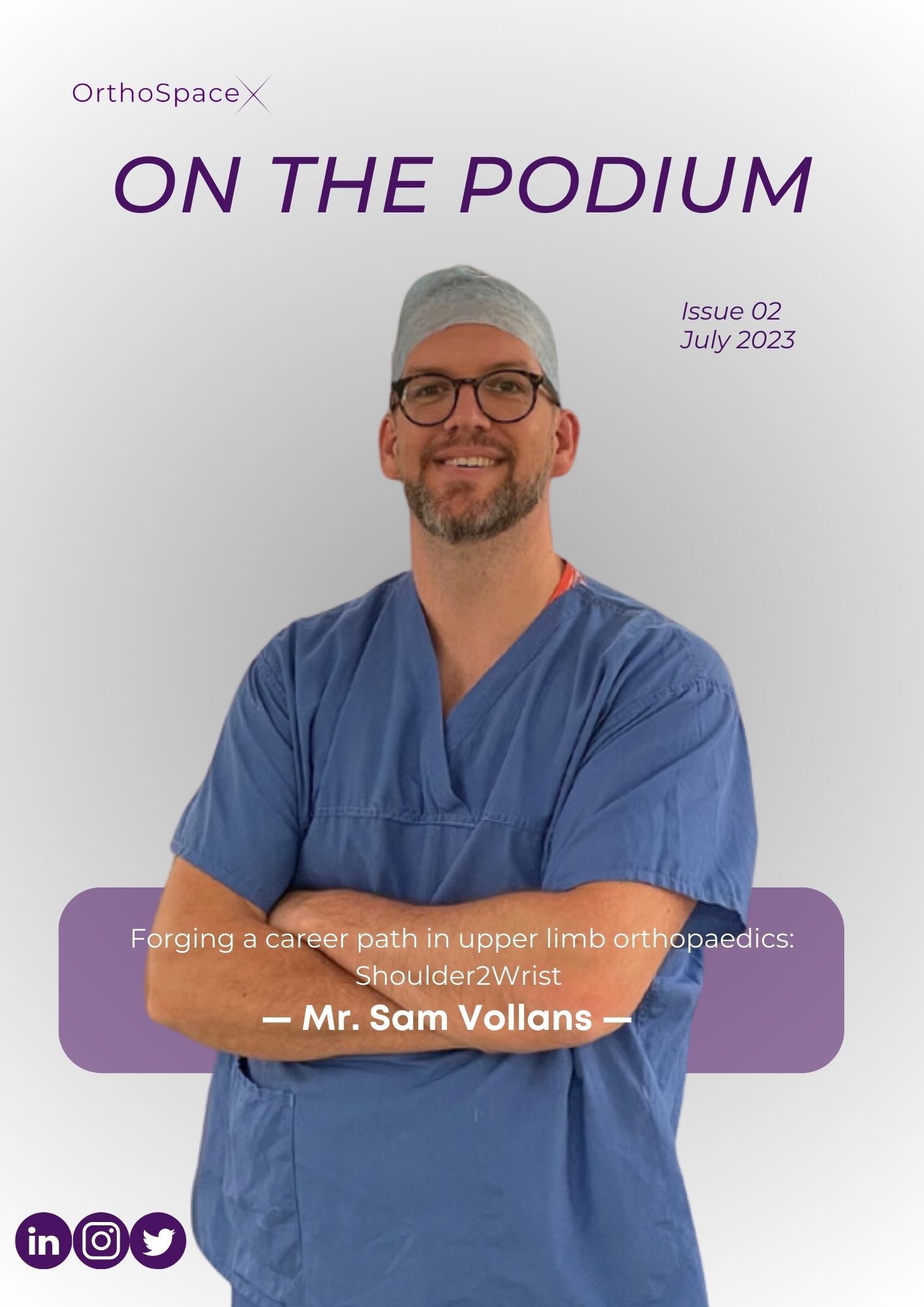
Slide title
Write your caption hereButtonSlide title
Write your caption hereButtonSlide title
Write your caption hereButtonSlide title
Write your caption hereButton
Slide title
Write your caption hereButton
Thank you for subscribing
Please try again later.


